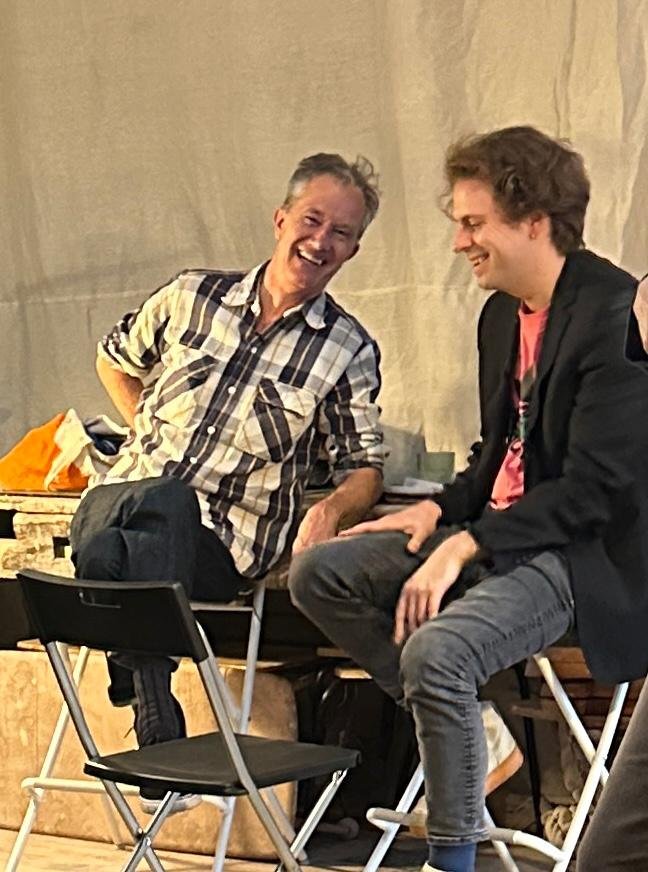On Thursday, the Mews Coachworks hosted the third event in its Conversations with Writers series. This time we had the privilege of being visited by Geoff Dyer, who had come back to the UK from sunny California. Geoff is the author of four novels and numerous works of non-fiction. His works have been translated into many languages and he is famous for covering a wide variety of topics, from photography, ‘See/Saw: Looking at photographs’ (2021), yoga, in ‘Yoga for people who can’t be bothered to do it’ (2003), and his most recent topic, endings, in ‘The Last Days of Roger Federer’ (2023).
One of his most famous works is Out of Sheer Rage (1997), an account of his struggle to write a book about DH Lawrence.
The conversation was hosted by Leo Robson who adeptly brought out some great insights from Geoff about his writing process. Geoff’s motto, which he frequently tells himself when sitting down at his desk is: ‘Write the book only you could write’. A piece of wisdom reminiscent of Zadie Smith’s advice to write in your own, true voice about what you really feel to be true. However, in Geoff’s terms, being true has a slightly more slippery and flexible definition. Dyer told us that when writing non-fiction he occasionally includes anecdotes and experiences from his life which he simply made up. An example being an anecdote about visiting the Natural History Museum as a child with his Grandfather. An event which was totally fictional, ‘I probably didn’t actually know what the Natural History Museum was at the time.’.
The reason for these micro fictions is quite illuminating though. For he argues that when reading non-fiction like his, as readers our interest is less in the subject and more in the consciousness of the writer. That is, the way in which the subject is encountered, mused upon, departed from and returned to. Indeed, there have been numerous books on photography, Yoga and DH Lawrence from people far more knowledgable than Dyer. But we read Dyer’s take on them because we like his style, we want to immerse ourselves in his consciousness.
The fictional anecdotes then, are in keeping with this approach to writing as they too are the products of his consciousness and will fit in with what he’s saying. Dyer understands why people read him, and he wants them to have a good time.
This primacy of the writer’s consciousness is similar to fiction writing, in that we read a novelist’s account of events because we enjoy the immersion in their mind, their perception and presentation of events is what the reader really wants.
Through Geoff’s creative wisdom, opinions on the craft and current trends, jokes and random anecdotes, we received a big helping of his consciousness. And what a delicious helping it was! After which we had a short round of questions followed by the usual servings of pizza and wine and mingling. A splendid Thursday indeed.
The next talk in the series will be Deborah Levy on the 18th September.
Words by Charlie Jameson

